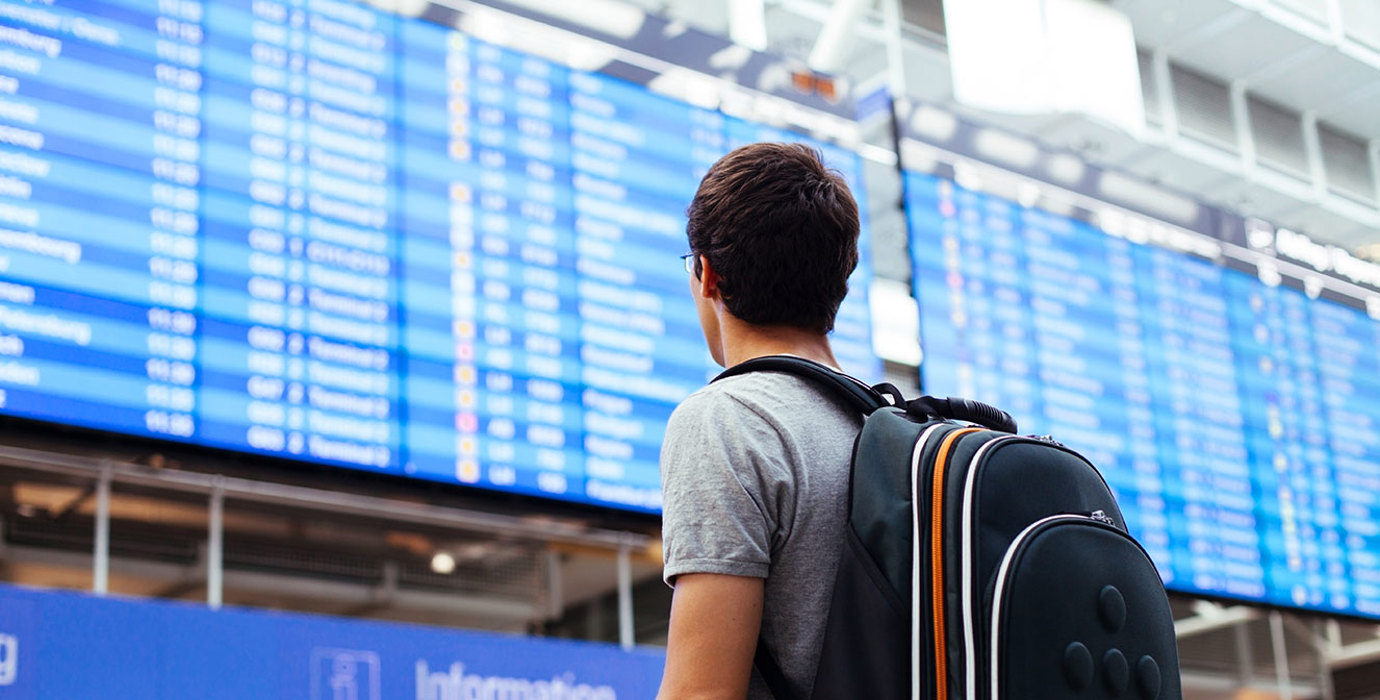Once you have chosen and been accepted to a study abroad program, you will need to prepare for living in another country.
Get ready by looking into:
- Costs and how to pay for them
- Travel documents
- Travel advisories
- Vaccinations and immunizations records
- What it’s like to live abroad
The cost of studying abroad
Think of studying abroad as an investment. Even if you’re heading to a country where the cost of living is less than in Alberta, you’ll probably spend more than if you stayed at home—you’ll want to explore and experience as much as you can while you’re there.
In addition to tuition costs, studying abroad involves:
- Living expenses, including accommodation, food, and daily transportation
- Travel expenses, including insurance and leisure travel at your destination
- Passport and visa/study/work permit costs
- Travel, medical, and dental insurance
- Incidental costs, e.g. post-secondary application fees
Plan a budget that lets you cover your expenses plus the extras that will enhance your stay, such as eating out and travel.
Ways to pay for studying abroad
Figure out how you’ll pay for your studies and apply for student aid as early as possible. To qualify for a student visa you usually have to prove you have enough financial resources to pay for your travel, school, living, health and other expenses while living in your destination country.
To find out whether you’re eligible for student aid and to get help preparing your application, contact Student Aid Alberta or visit How to Apply.
Find out if you're eligible to withdraw from your Registered Retirement Savings Plan (RRSP) to finance your education, and also find out if you qualify to withdraw funds from a Registered Education Savings Plan (RESP).
If you’re receiving any scholarships or bursaries, talk with the granting organization to find out whether support will continue if you study abroad. To find scholarships for studying abroad, check with your Alberta post-secondary school and the following sources:
- Scholarships Canada—type "international" as a keyword
- Study abroad program choices
- International scholarships
- Global Scholarships
For further information on study abroad opportunities and other funding sources:
- Check with the Study Abroad or International Office of your post-secondary school.
- Visit Study abroad programs for Albertans on Alberta.ca.
Travel documents
To study abroad you’ll need several important documents. Because you need some of these documents before you can qualify for others, it’s important to time your applications carefully:
- Start by obtaining a valid Canadian passport. If you already have a passport, make sure that it doesn’t expire until several months after you plan to return to Canada.
- Obtain any financial assistance you require.
- Obtain travel health insurance.
- Obtain, if required, a study permit and student visa for the country where you’re attending school. Keep these points in mind:
- You need a valid Canadian passport to apply for a student visa.
- You may need to prove that you have sufficient funds, e.g. student funding, before you’re allowed to apply for a student visa. Proof of sufficient funds would typically include your letter of acceptance from your school abroad, as well as photocopies of bank statements, proof of student loans and scholarships, etc.
- You may need to prove you have travel health insurance.
If you want to work while studying abroad, you may need an additional visa or work permit. To find out more about visas and other documents, contact the country’s Canadian embassy or consulate through Global Affairs Canada.
Health, safety and other considerations
Global Affairs Canada provides a wealth of information for students who want to study abroad. Call 1-800-267-8376 toll-free or visit Travel and Tourism to:
- Sign up for the free, confidential service Registration of Canadians Abroad to stay connected in case you need emergency assistance.
- Learn about the vaccinations you need to stay healthy abroad and to re-enter Canada upon your return.
- Review the travel advice and advisories for your destination country and region.
- Get a copy of the publication “Bon Voyage, But…” to find out how Canadian consular services can and cannot help you while you’re abroad.
In case anything happens, it’s a good idea to prepare a will before you leave. You should also have a power of attorney document appointing a person to handle your financial affairs, such as student funding and taxes, in your absence.
Life as an international student
Find out all you can about the study abroad experience:
- Take part in the activities offered by the study abroad organization at your Alberta post-secondary school.
- Talk to students who have studied abroad.
- Check out the study abroad handbooks and websites listed under Additional Information in this article.
Find out about the culture of the country you’ll be visiting:
- Talk to Canadian students who have studied there.
- Talk to international students from that country.
- Research the country and its culture online.
Be ready to make the most of your international student experience
Studying abroad can be an unforgettable, life-changing experience. You’ll be able to make the most of it if you start to plan early, pay attention to the many necessary details and do your homework. You’ll reach your destination relaxed and ready to learn in a new environment, explore a different culture and make new friends.
Additional Information
For information about funding post-secondary education, visit:
For information about studying abroad, see these resources:
- Go Abroad
- Study Abroad
- University of Alberta’s Go Abroad website
- University of Calgary’s Study Abroad website



